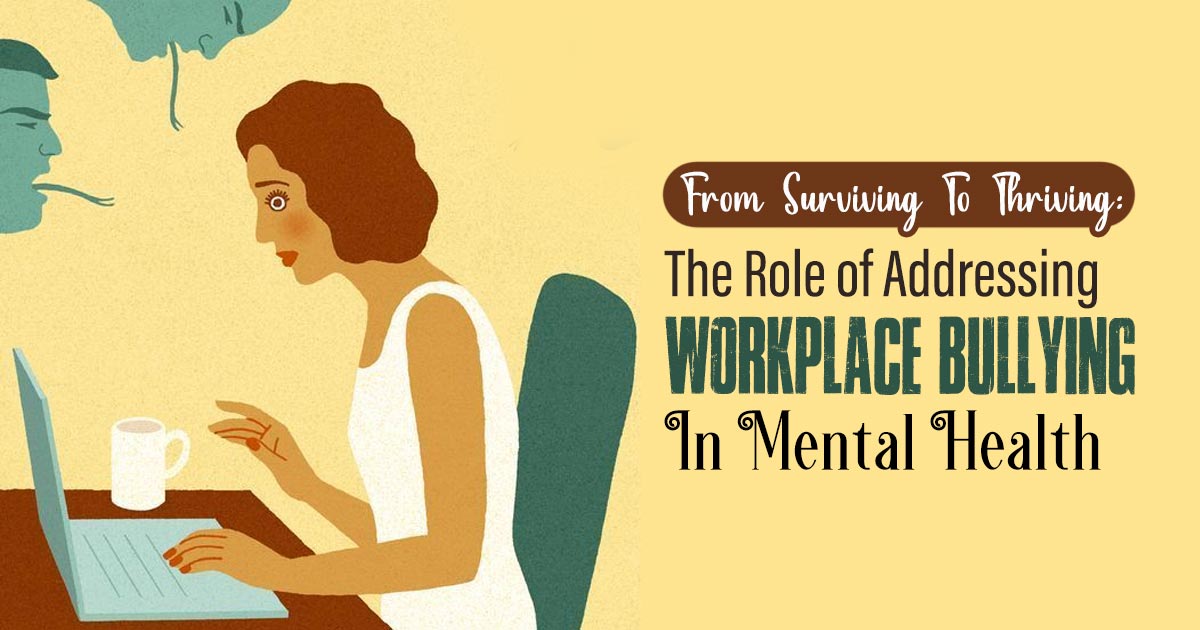Workplace bullying is a pervasive issue that affects employees across various industries and organizations. Recognizing the significance of addressing the mental health impact of workplace bullying is crucial for creating healthier, more productive, and compassionate work environments.
What Is Workplace Bullying?
Workplace bullying, often referred to as psychological harassment, is characterized by repeated and deliberate mistreatment of an employee by their peers, superiors, or subordinates. It takes various forms, including verbal abuse, social exclusion, humiliation, and spreading false rumors.
Unlike isolated incidents of conflict, bullying is a systematic and ongoing pattern of behavior aimed at belittling, intimidating, or harming the target. This behavior can occur through various channels, such as in-person interactions, email, phone calls, or social media, making it challenging for victims to escape. The key element is that it creates a hostile work environment, damaging the victim’s well-being and job performance.
Mental Health Impact Of Workplace Bullying
Workplace bullying has severe mental health consequences for its victims. It can lead to increased levels of stress, anxiety, and depression. The constant fear of encountering the bully or the next attack can have a profound impact on an individual’s emotional well-being.
Victims may experience sleep disturbances, a heightened sense of vulnerability, and persistent feelings of unease, often extending beyond working hours. This heightened psychological distress affects both the individual’s personal and professional life, leading to a decrease in overall quality of life.
Bullying erodes an individual’s self-esteem and self-worth. When subjected to consistent criticism and derogatory remarks, victims may start to internalize the negative feedback, believing that they are incompetent or worthless. This, in turn, can lead to feelings of shame, self-doubt, and a sense of powerlessness, which can be particularly damaging to their mental health.
Workplace bullying often isolates its victims from their colleagues and friends. Due to the fear of retaliation or judgment, individuals may withdraw from social interactions, leading to further loneliness and social isolation. This isolation can compound the emotional distress experienced by the victim, making it challenging to find support and resources to cope with the situation.
Addressing Workplace Bullying
Addressing workplace bullying is paramount to fostering a healthy work environment. Organizations should have clear policies and procedures in place to prevent, identify, and address bullying. This includes raising awareness about the issue, providing training for employees and supervisors, and establishing confidential reporting mechanisms. It is crucial to hold perpetrators accountable for their actions, creating a culture of zero tolerance for workplace bullying.
Addressing The Mental Health Impact Of Workplace Bullying
To address the mental health impact of workplace bullying, organizations should offer victims access to supportive resources. This can include employee assistance programs (EAPs), counseling services, or mental health professionals who can provide guidance and support. These resources can help victims cope with the emotional trauma and regain their mental well-being.
Victims of workplace bullying often suffer in silence due to fear or stigma. To address the mental health impact, it is essential to create an environment in which employees feel comfortable discussing their experiences and seeking help. Encouraging open dialogue about the issue can help break the cycle of silence and allow victims to access the support they need.
Why Addressing The Mental Health Impact Of Workplace Bullying Matters
Recognizing and addressing the mental health impact of workplace bullying is of utmost significance for several reasons:
1. Employee Well-being:
The mental health and well-being of employees are vital to the success and productivity of any organization. Employees who experience bullying are more likely to suffer from mental health issues, leading to decreased job satisfaction, lower productivity, and increased absenteeism. By addressing the mental health impact, organizations can ensure that their workforce is healthier and more engaged.
2. Legal And Ethical Responsibility:
Employers have a legal and ethical responsibility to provide a safe and healthy work environment for their employees. Failing to address workplace bullying not only affects the mental health of victims but also exposes the organization to potential legal liabilities and damage to its reputation.
3. Retention And Recruitment:
Organizations that tolerate workplace bullying risk losing talented employees and may find it challenging to attract new talent. Prospective employees are increasingly considering workplace culture and mental health support when choosing an employer. Addressing the mental health impact of bullying can help retain existing talent and attract new professionals who seek a supportive work environment.
Workplace bullying is a deeply concerning issue with far-reaching consequences for both the individuals involved and the organizations where it occurs. Recognizing the significance of addressing the mental health impact of workplace bullying is not only a moral obligation but also a strategic imperative for creating a healthier, more productive, and compassionate workplace.
By fostering an environment where employees are protected from bullying and supported in their mental well-being, organizations can thrive and flourish.

